Landing Page
Featured story slideshow, master of fine arts in creative writing & poetics.
Image: LaTasha N. Nevada Diggs performing the opening keynote at the 2019 Fall Convergence

UW Bothell: Where Writers and Artists Converge
Find your voice as a writer while inquiring into the social, cultural and technological aspects of writing. How is writing an ethical, political and aesthetic endeavor?
Our students experiment across genres and are encouraged to extend their practice beyond the page, drawing upon media, art and performance.
Our unique curriculum includes workshops, seminars and opportunities to participate in readings, conferences and festivals.
Earn your degree with flexible evening classes designed for working professionals. Join a creative community and gain valuable skills for a vibrant writing career.
Learn more about our program below.
Explore the UW Difference
Designed for.
Writers who want to join a supportive community of literary peers and gain the credentials to work in diverse industries or teach at the college level
Program Highlights
- Experimental writing, hybrid forms and performance
- Critical thinking about contemporary literature and art
- Exploration across genres and media
- Hands-on collaboration with faculty
- Visiting writers and artists
- Connection with Seattle’s thriving literary community
Degree You'll Earn
Master of Fine Arts in Creative Writing & Poetics
Program Length
2 years / 6 quarters
When Classes Meet
Evenings; part-time and full-time options available
Autumn 2024 Application Deadline
February 1, 2024
Our Faculty
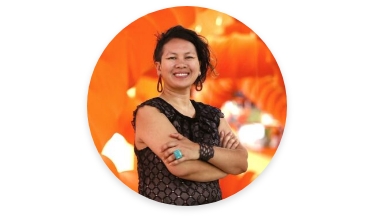
Anida Yoeu Ali
Senior Artist-in-Residence
Investigates the artistic, spiritual and political collisions of a hybrid transnational identity
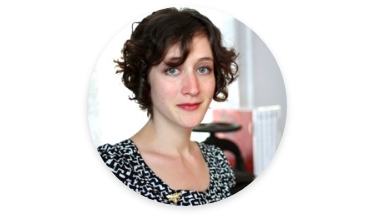
Amaranth Borsuk
MFA Program Director Associate Professor
Works at the intersection of print and digital media
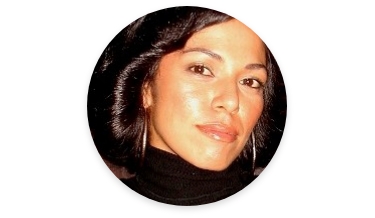
Naomi Macalalad Bragin
Associate Professor
Dancer, writer and performance ethnographer
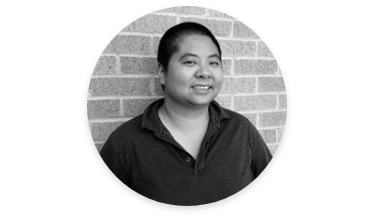
Ching-In Chen
Assistant Professor
Hybrid writer, community organizer and performer
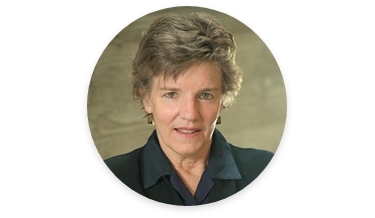
Jeanne Heuving
Founding Director
Teaches classes in creative writing and poetics, literature and cultural studies
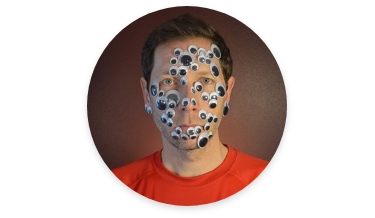
Ted Hiebert
Seattle-based interdisciplinary artist and theorist
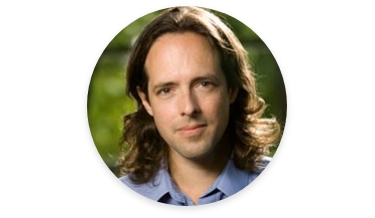
Joe Milutis
Writer and media artist
Outcomes Worth the Investment
Alumni accomplishments.
MFA alumni go on to publish their work, found literary journals and small presses, study in doctoral programs and build literary communities in Seattle and beyond. Here are some recent stories:
- MFA's Talena Lachelle Queen’s new exhibit at Paterson Museum
- MFA alumni Amy Hirayama and Emily Mundy teach workshops in somatic exploration
- MFA alum Troy Landrum Jr. selected as Wa Na Wari Fellow
Average annual salary for writers and authors in Washington state in 2022
Projected annual job growth for writers and authors in Washington state (2020–30), which is much faster-than-average job growth
* Source: O*Net Online
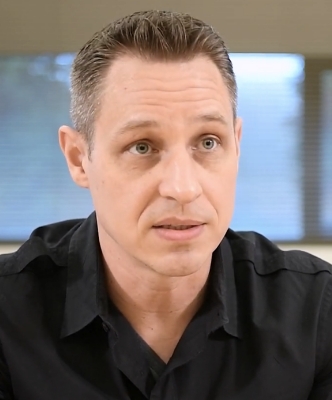
“ Having other people come from an experimental poetry section, which I didn’t even know was a thing. And then also Filipino mythology and folklore, and people who are brilliant poets who use sound poetry — how the words sound and feel in your mouth as opposed to how they look on the page. Experiencing all these different artistic approaches was phenomenal. It was absolutely worth every second I could spend in class to learn .”
TERRELL FOX
Creative Writer, Editor, Mediator and Leader Alumnus, Master of Fine Arts in Creative Writing & Poetics
Brought to you by UW Continuum College
© 2024 University of Washington | Seattle, WA
- Faculty & Staff
English - Creative Writing
College of Arts & Sciences
The English Creative Writing concentration prepares students not only to be more effective communicators and artists, but also creative problem solvers and more nuanced critical thinkers. By situating small, student-oriented writing workshops alongside literary models, creative writing classes enhance the broader study of literature and critical theory, helping students gain a greater understanding of the social and cultural forces informing their work. A student completing the program is more able to situate themselves in a larger aesthetic and social context and make more meaningful, informed decisions about their own artistic practice. In addition, through the intense practice of creative writing, students are able to see the world more clearly, in a more nuanced and meaningful manner, and apply these skills to a wide variety of work and life situations.
Major category : Capacity-constrained
Minor available
Curricular options : Creative Writing
Topic(s) : Arts, Humanities and Design
Applicant type
Freshmen can apply to the UW to begin autumn quarter or winter quarter (U.S. applicants only)
Read more about applying to the UW as a freshman , including details for programs that provide high school students with college credit (like Running Start).
Quarters of general admission to UW : autumn / winter (U.S. applicants only) / spring / summer
Preparation for the major is a factor in transfer admission.
- Use the information below to help you prepare for this degree
- Visit MyPlan to run a degree audit.
- Use the UW Equivalency Guide to find out how courses taken at a Washington state community or technical college will transfer to the UW.
- UW college and school graduation requirements
Department admission information
Please contact the department for details about the application process.
Read more about applying to the UW as a transfer student .
Courses required for the major:
Creative Writing option
- Admission to the English major
- Minimum cumulative GPA of 2.00
- Minimum cumulative GPA of 2.50 in all English coursework
- Minimum 2.0 GPA in ENGL 202
- ENGL 283 (beginning verse) and ENGL 284 (beginning short story) or transfer equivalents.
- Submission of an unofficial transcript and a writing sample of 3–5 poems and 5–10 pages of fiction (preferably a complete story) to the Creative Writing office (B-25 Padelford) during the first three weeks of autumn and spring quarters.
Courses recommended for the major:
ENGL 202 is usually taken after transfer to the UW. Spaces are reserved for new transfer students in autumn, winter and spring in this pair of courses.
Entering transfer information:
Total undergraduates: 56 Total from Washington community colleges: 10
Entering transfer GPA (from WA community colleges):
3.75 – 4.00: 5 3.50 – 3.74: 3.25 – 3.49: 3.00 – 3.24: 2.75 – 2.99: 2.50 – 2.74: 2.49 and below:
Career outcomes
- Mission, Values, and Goals
- Diversity Plan
- Scholarship
- How to apply
- American & Ethnic Studies
- Community Psychology
- Conservation & Restoration Science
- Culture, Literature & the Arts
- Data Visualization
- Earth System Science
- Environmental Science
- Environmental Studies
- Gender, Women & Sexuality Studies
- Global Studies
- Interactive Media Design
- Interdisciplinary Arts
- Interdisciplinary Studies
- Law, Economics & Public Policy
- Mathematical Thinking & Visualization
- Media & Communication Studies
- Science, Technology & Society
- Society, Ethics & Human Behavior
- Degree Maps
- Minor in Creative Writing
- Minor in Diversity
- Minor in Ecological Restoration
- Minor in Gender, Women & Sexuality Studies
- Minor in Geographic Information System
- Minor in Human Rights
- Minor in Performance
- Minor in Policy Studies
- Minor in Science, Technology & Society
- Minor in Visual & Media Arts
- Learning Objectives
- Student Feedback
- Petitions and Forms
- Grade Appeal
- Grievances and Complaints
- IAS Degree Portfolio
- Research Opportunities
- Peer Facilitation
- Internships
- Community Engagement
- D.C. Human Rights Seminar
- Study Abroad
- Global Scholars
- How to Apply
- Thesis Work
- Fall Convergence
- Spring Festival
- MFA Publications
- About Cultural Studies
- Cultural Studies: Starting Points
- Graduate Research Conference
- Why Policy Studies?
- Prospective Students
- Graduate Admissions
- Finding an Internship Site
- For Internship Sites
- For Faculty
- Registration
- On leave and withdrawal
- Satisfactory Performance and Progress
- Petitions and forms
- Campus Resources
- Incoming Students
- Technology Resources and Support
- Educational Access & Opportunity Fund
- Global Scholars Fund
- Experiential & Community Based Learning Fund
- Academic Excellence & Emerging Initiatives Fund
- Diane and Mike Gillespie Community Action Fund
- Nony Clark Milmoe Scholarship
- Sandra Martin Roberts Memorial Scholarship
- Washington D.C. Travel Assistance Fund
- Graduate Studies Excellence Fund
- Master of Fine Arts (MFA) Program Fund
- American Muslim Research Institute Fund
- All IAS Funds
Quick Links
- Information Technology
- Commuter Services
- Human Resources
- Campus Safety
Creative Writing & Poetics (MFA)
Writing Changes
The Master of Fine Arts in Creative Writing & Poetics at the University of Washington Bothell is dedicated to helping each student develop their creative work through a course of study that encourages exploration and discovery.
We organize our curriculum into areas of inquiry rather than genres. In contrast to many MFA programs, our writers enjoy the freedom to experiment across genres and media as suits their creative purposes. Emphasizing experimentation and hybridity, our program invites students to participate in a community concerned with the pursuit of creative writing in a rapidly changing society.
The MFA poses the central questions of poetics, inquiring into the social, cultural, and technological aspects of writing to ask: How is creative writing an ethical, political and aesthetic endeavor? What forms might creative writing take in an interconnected, transnational society? How does new media alter the environment and possibilities for creative writing?
Each academic year kicks off with the Fall Convergence , a gathering of nationally and internationally renowned writers and artists to engage topics in contemporary poetics. The year closes with the Spring Festival , where graduating students share their thesis work publicly and receive a benedictory reading from a student-nominated invited speaker.
Program Highlights
- Focus on experimental writing and hybrid forms
- Vibrant roster of visiting writers, conferences, and festivals
- Evening program designed for students with jobs and other commitments
- Optional residency in second year
- Flexible part-time or full-time thesis completion
- Connections to Seattle’s thriving literary and arts scene
Interested in Learning More?
Contact us at [email protected]
UW creative writing program is a magnet for future literary stars
With its top ten ranking and its core of prize-winning faculty, the UW creative writing program is a rising star of literary America.
By Cheryl Murfin Bond | Dec. 1997 issue
- UW Magazine Facebook
- Jump To Comments
A little satin like wind at the door. My mother slips past in great side hoops, arced like the ears of elephants— on her head a goat-white wig, on her cheek a dollop of mole.
She has entered the evening, and I her room with its hazel light. Where her wig had rested is a leather head, a stand, perfect in its shadow but carrying in fact, where the face should be, a swath of door. It cups
in its skull-curved closure clay hair stays, a pouch of wig talc that snows at random and lends to the table a neck-shaped ring.
When I reach inside I am frosted my hand like a pond in winter, pale fingers below of leaves or carp… —From The Ghost Trio by Linda Bierds
Poet Linda Bierds doesn’t know why her attention was drawn toward the odd antique—a weathered, leathered wig stand once used by Charles Darwin’s grandfather. But there it was, its bald orb and false-face trap door calling out to her from a display in a London museum. Calling out like … well, like a poem in search of a writer.
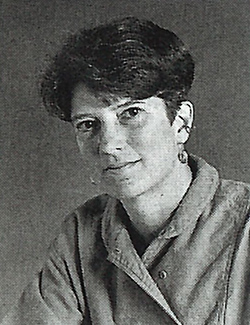
Linda Bierds
“It immediately struck me. I remember asking myself why would they include that particular item in the display? What significance did it have in Darwin’s life?” says Bierds. “Soon after that I found myself asking `What is the significance of this image to me? Why did it touch me?’ ”
It was the work of answering such questions—and countless others a writer must ask in the creative process—that turned the museum’s wig stand into the eloquent opening of Bierds’ most recent book of poetry, The Ghost Trio .
Simple, sometimes unremarkable images to most of us. “That’s almost always how they start,” says Bierds, reflecting on the convergence of life and art that is the heart of great poetry, of great writing in any genre. Listening to Bierds describe a poem’s inception leaves one wondering whether writers are indeed born not made, arriving in the world with some innate literary vision or poetic nature.
Pure talent is, of course, part of the equation, says Bierds. But the new director of the University’s highly acclaimed graduate creative writing program, and her colleagues, stress that it’s a long, hard road from calling to perfection, from initial inspiration to completed text.
It is that road which these teachers—committed artists all—hope to help emerging writers navigate. Their reputation for doing so at the UW has grown steadily in the past decade. As many as 300 would-be writers apply for the graduate program’s 16 annual openings.
In a U.S. News & World Report survey conducted in March, the University’s Masters of Fine Arts program was ranked 10th among 200 creative writing offerings across the nation, tying with programs at Boston University, Washington University in St. Louis and Cornell.
The magazine’s annual review included creative writing graduate programs for the first time in 1997, a year that also marks the 50th anniversary of poetry and fiction writing instruction at the UW.
Following the arrival of poetry master Theodore Roethke in 1947, generations of promising writers have blossomed here under the tutelage of contemporary poets, short-story authors, novelists and essayists: Nelson Bentley, David Wagoner, Colleen McElroy, Charles Johnson, David Bosworth, Shawn Wong and David Shields among them. Noted poets Tess Gallagher, ’63, James Wright and Richard Hugo have all taken seats as students. They have been followed by a cadre of promising writers today, including poets Frances McCue, ’88; and Sean Bentley, 81; and novelists David Guterson, ’78, ’82; and Dan Orozco, ’94.
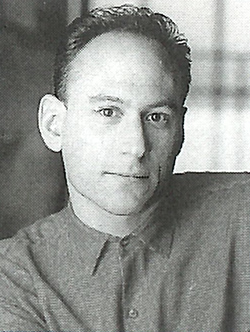
David Shields
“As a faculty we believe we compare to any creative writing faculty in the country,” says longtime instructor David Shields, author of the critically acclaimed novels Dead Languages and Heroes .
Students who enter the M.F.A. program with the naive assumption that it will a) turn them magically and painlessly into writers or b) launch their careers “are in for a rude awakening,” says Elizabeth Dye, a second-year fiction student. Book agents and editors are not likely to flock to your doorstep upon graduation, Dye points out. In fact, waiting tables is likely to net more money than putting pen to paper for years after graduation.
Why, then, do students pledge the considerable cost in both time and money to immerse themselves in a discipline so slow to pay off, if at all? They come because they have something to say, according to Charles Johnson, who holds the S. Wilson and Grace M. Pollock Professorship in Creative Writing.
“They have something to say that they haven’t seen said and their motivation is to say it,” Johnson says, borrowing an idea from Jean Paul Sartre. “This program is part of finding out what it is they have to say that no one else has been able to put down exactly right. It’s the beginning of a lifelong process, of enlightenment.”
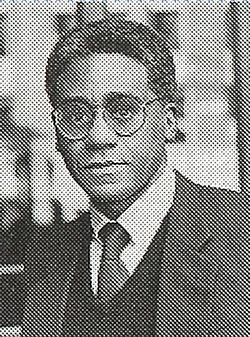
Charles Johnson
“It’s kind of like being in a store where there are tons of clothes but none of them look right to you. You try some on, you look closer but what you need is just not there,” Dye explains. “There is a kind of writing I have never seen before that I want to see so I guess I have to write it. I see this as two years to crystallize that idea of the kind of thing I want to write.”
Many students come because they simply don’t have all the tools necessary to recreate their thoughts and stories on paper. Former student Guterson, winner of the 1995 PEN/Faulkner Award for Fiction wfor his novel Snow Falling on Cedars, is most succinct on this issue. Of the UW creative writing program, Guterson says simply: “It’s where I learned to write.
“Writing is like any other creative process, the components need to be learned,” he says.
In two-hour workshops, students learn step-by-step the skills that transform good writing, or simply good ideas, into great writing: development of interesting characters, well-planned plot, challenging and appropriate symbolism, nuance, metaphor, well-written dialogue. They are urged and pushed to read the work of classic writers as well as fellow students critically and to receive criticism openly. While providing a steadying hand, teachers are careful not to ground students in their own agendas or styles of writing.
“I’ve found guidance when I wanted guidance and freedom when I wanted that,” says student Manju Thapa. “There is no pressure to conform to one style of writing at the expense of my own stylistic impulses. All students are challenged to set their own goals and meet them on their own, which is the only way, perhaps, that writing can be taught. The instructors have an excellent sense of when to push a student and when to leave the student alone.”
Students learn how to ask critical questions of themselves and others, how to challenge opinion and redirect their work in the effort to perfect it. With five instructors in the poetry and five in fiction—not to mention 10 divergent teaching and writing styles—students are in a constant process of redirection and revision.
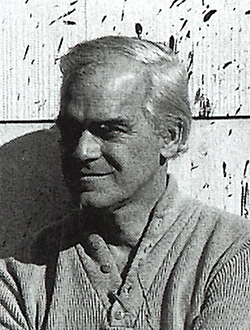
David Wagoner
“Each of us is probably considered individually bizarre or eccentric and yet we balance each other out,” David Wagoner says of the program’s unusually large faculty. Wagoner is author of 26 books of poetry and fiction. He won one of America’s highest poetry honors, the Ruth Lilly Poetry Prize, in 1991.
“I encourage my students not to believe me or take my opinions on faith,” he says. “If they disagree, I tell them to seek other opinions and to offer some reason for their disagreement.”
Defending your work is perhaps the best way to critique it, Thapa says. “By our exposure to each other’s writing and criticism … we not only see the thematic and technical choices our peers have made, but have to defend the choices we have made.”
According to teacher Colleen McElroy, students learn to have a critical eye for what is on the page and how each passage reflects the writer’s intent.
Before analyzing, students must open themselves to affectation: “You read a poem that affects you and for the first five minutes you allow yourself to feel that,” says McElroy, author of eight books of poetry and two collections of short fiction. “Then you must do a closer reading of the work, to find out why the poem impacted you.”
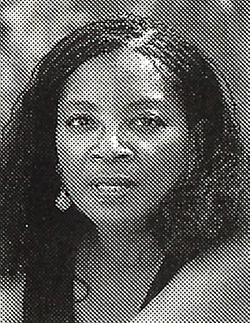
Colleen McElroy
Success as a writer takes complete commitment to the creative process, discipline and intense patience. For no one is that statement truer than McElroy, whose tome What Madness Brought Me Here: Selected Poems, 1968-89 was, as the title suggests, years in the making. Writing, McElroy says, is a need, not a want. “You are hungry for something and you just can’t find it,” she says. “It’s a gnawing presence that, if you don’t write, says to you `You didn’t eat today.’ ”
That’s not to say there aren’t days when you simply go hungry.
“It’s feast or famine for me,” says McElroy, who can spend 15 hours in an undisturbed flurry of words, producing pages of script, or find herself agonizing over a single sentence.
“You have to write everyday,” says English Department Chair Shawn Wong, a novelist who led the creative writing program prior to Bierds.
“I tell my students there is no such thing as writer’s block. By the end of the program, writing will be much harder then it was when you came in. You feel like you are less in charge and you have more tools at hand and more decisions to make. Writing never gets easier for graduates because they demand more of themselves the more they know.”

Knowing more is the common pursuit of student and teacher: a self-knowing that enables a writer to recognize his or her own unique vision as a writer. They search for a “voice” or language that is explicitly the writer’s own, created from the writer’s experience of life and his or her experience of other writers’ words.
“Voice is only one trick in a bag of tricks, but to me it is the most important trick,” says Shields. “It has to do with a way of thinking that is uniquely yours. You can find fiction that has a compelling narrative and well-defined characters, but if it doesn’t have a unique sound, it holds no claim on me.
“Voice is the rhetoric of a writer’s way of thinking. Writers must develop a language that is all their own, that conveys to others what their brain sounds like when it’s thinking,” he adds. “Writing, in my opinion, is the closest human beings get to communicating completely with each other. And it’s voice that does that. It’s why I read. It’s why I write.”
McElroy likens the voice of a writer to fingerprinting: “It’s how you leave your mark.”
Even if you find your voice, it takes, on average, 15 years for a serious writer to turn the corner from author-peddler to peddled author. Guterson’s Cedars has sold more than a million copies, but the writer paid his dues in a high school English classroom and published a book of shorter pieces and a book on home schooling before rising to literary star status.
Instead of unrealistic expectations of fast and lucrative literary success, the staff hope graduates leave the M.F.A. program with a sense of ownership in the broader community of working writers. They want former students to take their place in the literary world by continually reading, analyzing and learning from the works of classic and contemporary colleagues and then applying those lessons to their own craft.
“Writing is not a solitary act, it is an act of community,” says graduate Frances McCue, ’88. “The program allowed me to become not only a writer but a literary activist, working to put marginalized works before the public. In a sense, that community has been able to console me in the solitude of writing.” McCue is a poet and executive director of Seattle’s newest garden of literary support, Richard Hugo House, “a community center for readers, writers and audiences.”
“Seriousness of purpose is one of the fundamental things that I learned I needed in the program,” says Guterson.
Who better to instill that lesson than Guterson’s mentor Charles Johnson, whose novel Middle Passage won the 1990 National Book Award. Johnson is purpose personified, a whir of production. During his 21-year tenure here, he has completed several award-winning books, essays and novels. He is a screenwriter, book reviewer and editor of the Seattle Review . Nine months a year he dedicates himself to teaching because, as he says, “I owe it to those teachers who helped me become the writer I am.”
“It’s always a balance,” Johnson says of the creative writing faculty’s ability to teach and consistently produce written works. Watching a student rise to his or her own best writing, is part of each teacher’s definition of personal success.
“To see someone like David Guterson is a great joy to me,” Johnson says. “He’s standing on his own two feet and he did not sell out to do it. Everything he’s done has been in service to his stories.”
That, in essence, is what the creative writing program is all about: graduating students who no longer need the program, with it’s structured, tight environment and instant critic’s circle, to write.
“No teacher can make more demands on you than you can make on yourself,” says Wong. “My hope is that when students leave, they don’t need people like me. The workshop voices are now in your head, you can be brutally honest with yourself as a writer. The best students are the ones who continue to investigate what we’ve taught them long after class is over, when they are not being forced to do it.”
Despite its growing reputation, the creative writing program is far from being on equal footing with programs at other universities when it comes to recruiting. Better funding, especially from private sources, would enable the department to lure high quality students who need financial aid, bring in more visiting scholars, hire a full-time program director instead of passing the torch amongst faculty members, and help to recruit more minority writers, says Wong.
“We’d love to have a post-M.F.A. fellowship that is competitive nationally,” he says. “A writer very early in his or her career doesn’t qualify for a lot of grants or fellowships that published writers can get. This would allow us to get them money when they need it most.”
“It is important for the University community to support creative writing because it’s our best chance of articulating what the future might be,” says McCue. “Support of this program should be parallel with the research sciences. These are the students who will be articulating another, crucial way of looking at the world. They are critical.”
Cheryl Murfin Bond is a free-lance writer who lives and works in Seattle. She is an editor at Seattle-based Northwest Parent Publishing and graduated from the UW in 1989.
Be boundless
Connect with us:.
© 2024 University of Washington | Seattle, WA
- Rhetoric, Writing, and Social Change
Minor and First Year Writing
- First Year Writing
- Get Involved
- Find People
- Explore Careers
Creative Writing
Main content.
The Creative Writing track is a distinctive literary arts program that emphasizes engaged writing in poetry, fiction and creative nonfiction. The core of the creative writing program at UW Tacoma is innovation and its commitment to intersections with a variety of academic programs, as well as its foundational value of interdisciplinary. With a sustainable core curriculum and contemporary-themed courses, students are offered multiple pathways to explore the literary arts both in and beyond the classroom. With a Creative Writing Track, students can purse their learning on careers such as professional writing, publications and even cartooning! For more information on these careers, check out the Alumni page.
Students on the creative writing track are part of an intimate community of peers dedicated to each other’s learning and expression in intersecting creative genres. In addition, students are offered the opportunity to meet local and national writers through reading series and visiting writers, while learning from core creative writing faculty who publish in their fields.
Completion Requirements
To be eligible for graduation with the Bachelor of Arts degree, students enrolled in the program must meet the UW Tacoma scholastic standards (2.0 UW GPA), credits required (minimum 180) and the final-year residency requirement and complete the following program requirements:
- Complete all general education requirements not met with transfer courses. See advisor for details.
- Complete a minimum of 45 credits of Interdisciplinary Arts and Sciences course work. Some majors or concentrations may require more.
- Complete a minimum of 45 credits of upper-division course work, including transfer courses and UW Tacoma courses.
- Complete 5 credits of (C) Composition designated course with a minimum 2.0 grade.
- Complete the requirements for a major (minors are optional).
- No more than 15 elective credits can be taken for a Satisfactory/Not Satisfactory grade. See advisor for details.
- Complete at least 45 of last 60 credits in residence at the University of Washington Tacoma.
- 45 upper-division credits and 45 credits of SIAS courses are required for graduation from SIAS.
- Meet with an advisor to complete a graduation application no later than the second week of the quarter in which the student plans to graduate.
For the Creative Writing Track, you need to complete 60 credits. You need to earn 45 upper-division credits and 45 credits of School of IAS courses to meet degree requirements. You must earn a total of 180 quarter credits, or 225 quarter credits for a double degree, to earn a bachelor of arts degree in your chosen major. Foundational courses: 10 credits Creative Writing courses: 20 credits Literature Breadth: 15 credits Technical Communication breadth: 15 credits
- TWRT 200 Introduction to Creative Writing (5)
- TLIT 101 Understanding Literature (5)
Choose 20 credits, see Writing Studies website for approved list of Creative Writing Electives. At least 10 credits of Creative Writing Electives must be 400 level.
Choose at least 5 credits from the following list:
- TWRT 270 Poetry Writing
- TWRT 280 Fiction Writing
- TWRT 287 Creative Nonfiction Writing
- TWRT 372 Writing Eco-poetry
- TWRT 382 Writing Popular Fiction
- TWRT 389 Nature Writing
Choose at least 5 credits from the list above or the following:
- TWRT 274 Spoken Word Poetry
- TWRT 333 Writing Through Comics
- TWRT 364 Food Writing for Cultural Exploration
- TWRT 384 Writing Historical Fiction
Choose at least 10 credits from the following list:
- TWRT 470 Advanced Poetry Writing (repeatable once)
- TWRT 480 Advanced Fiction Writing (repeatable once)
- TWRT 487 Advanced Creative Nonfiction Writing (repeatable once)
- TWRT 499 Advanced Topics in Creative Writing (maximum credits - 15)
Choose 15 credits, see Writing Studies website for approved list of Literature Electives.
Choose 5 credits from the following list:
- T LIT 390 Varieties of Literary Criticism
Choose 10 credits of upper division coursework outside of American literature from the following list:
- TLAX 476 Latin American Women Writers
- TLIT 335 Middle Eastern American Literature
- TLIT 343 Shakespeare
- TLIT 351 Ancient Greek Tragedy
- TLIT 352 Medieval Quests
- TLIT 371 The World Stage
- TLIT 380 Myth and Literary Sagas in Creative Expression
- TLIT 406 Children's and Young Adult Literature
- TLIT 481 Postcolonial Fiction
- TLIT 487 African Folklore and Literature
- TWOMN 434 Women's Voices: Transnational Testimonials
Choose the final 5 credits from the list above OR any 300-400 level TLIT course.
Choose 15 credits, see Writing Studies website for approved list of Writing Electives.
- TWRT 291 Technical Communication in the Workplace
- TWRT 292 Power, Privilege, and Bias in Technology Design
- TWRT 320 Rhetoric, Public Life, and Civic Engagement
- TWRT 330 Written and Visual Rhetoric
- WRT 331 Writing in the Natural Sciences
- WRT 340 Asian American Rhetorics, Literacies, and Activism
- WRT 350 Principles of User-Centered Design
- TWRT 353 User Experience Writing
- TWRT 355 Usability Testing Research
- TWRT 360 Playwriting
- TWRT 365 Literary Editing and Publishing
- TWRT 388 Writing for Social Change
- TWRT 391 Advanced Technical Communication
- TWRT 420 Rhetoric and the City: Composing Urban Landscapes
- TWRT 450 Principles of Accessible Design
- TWRT 440 Cross-Cultural Communication Design
- TWRT 464 Teaching Writing
- TWRT 492 Special Topics in Rhetoric and Composition
- TCOM 348 Non-fiction Writing for Television
- TCOM 387 Writing for Public Relations
- TCOM 484 Opinion Writing for the Mass Media
- TCOM 486 Feature Writing for Print Media
- TFILM 350 Screenwriting
- TIAS 491 Professional Portfolio Design
Have A Question?
Students with additional questions about their track, credit requirements, or classes, can contact the CAC (Culture, Arts, & Communications) advisors.
- Academic advising
- Academic calendar
- Schools and programs
- Study Abroad
- Teaching and Learning Center
- Campus Safety
- Equity & Inclusion
- Financial Aid
- Information Technology
- Student Life
- University YMCA Student Center
- Administration
- Institutional Research
- Parking & transportation
Let your curiosity lead the way:
Apply Today
- Arts & Sciences
- Graduate Studies in A&S
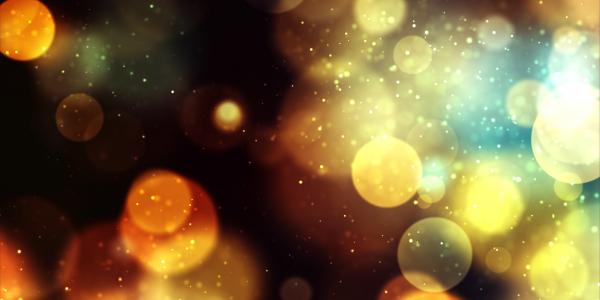
MFA Program
The Writing Program
The MFA Program at Washington University in St. Louis is a two-year program where 30 students are working toward MFA degrees in fiction, poetry and creative nonfiction. Our world-renowned faculty will mentor you and your writing to develop to your full potential. In addition to working with our faculty, our reading series brings a diverse group of poets, fiction writers, and nonfiction writers to the department, and the Hurst Professor program brings distinguished visitors each year to present their newest work, lecture on the craft of writing, and work one-on-one with our MFA students. Alison Bechdel, Claudia Rankine, George Saunders, Patricia Hampl, Kelly Link, Joy Williams, and Terrance Hayes are just some of our recent Hurst Professors.
The two-year program is rigorous and challenging, but fosters a close-knit community of support that continues long after the degrees have been granted. At the heart of the program are the fiction, creative nonfiction and poetry workshops, with craft courses in all genres, access to the department’s courses in literature, and many other courses in the College of Arts & Sciences also available to MFA students. Students may also take graduate courses from other departments when appropriate to their creative endeavors (and with the permission of the faculty).
Entry into the program is highly competitive—out of hundreds of applications received, we accept only 15 students (five each in fiction, poetry, and creative nonfiction). Our students come from all over the US and around the world and generally include a mix of recent undergraduates and older students, with a diversity of writing styles that continues to surprise us.
Learn More about Life in St. Louis
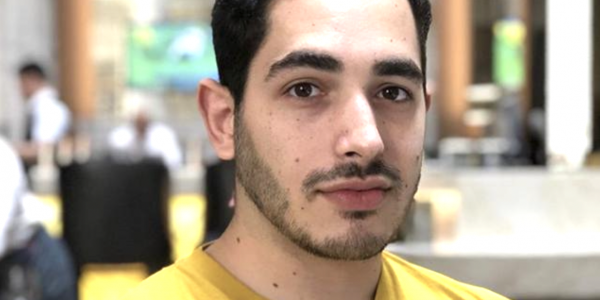
MFA Alum. Nathaniel Rosenthalis plublishes his second Book, The Leniad
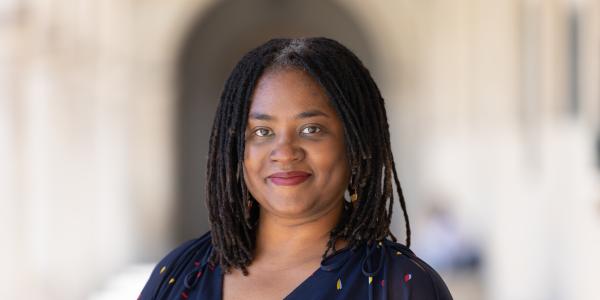
Niki Herd is featured in today's Poetry Daily
Check out her poem "Lyric Sung in Third Person" and essay "What Sparks Poetry: Language As Form".
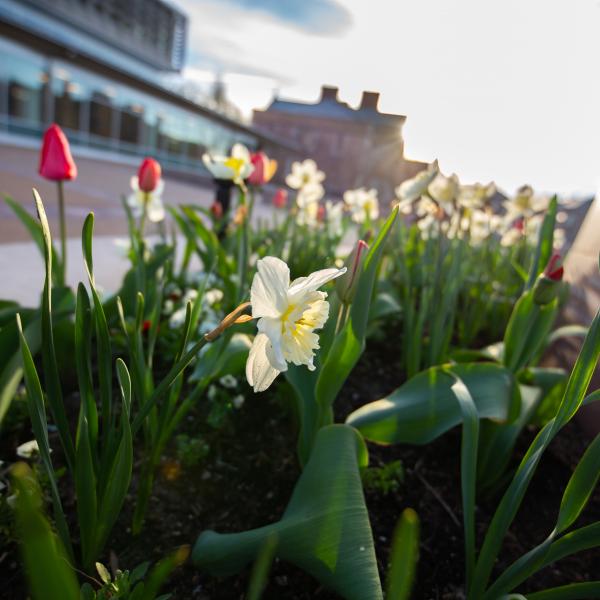
Funding and Fellowships
Financial support.
Because of our selectivity and size, we are able to offer all our new students full and equal financial aid for both years in the program in the form of an A&S Fellowship, which provides a complete tuition waiver plus a stipend sufficient for students to live comfortably in our relatively inexpensive city. There are also two university-wide fellowships for graduate students, which applicants to the MFA Program are urged to apply for separately: the Spencer T. Olin Fellowships for Women and the Chancellor's Graduate Fellowships. All MFA students receive health insurance through Washington University.
Program Structure
The Writing Program leads to the Master of Fine Arts in Writing (MFA). It is a two-year program, requiring satisfactory completion of 42 semester hours, a thesis (usually a volume of poems, short stories, a novel, a collection of essays or a book-length nonfiction manuscript), and an oral examination dealing principally with the thesis.
Please note that, beginning in 2017, we no longer require the GRE for admissions.
Admission to the Writing Program at Washington University is highly competitive. Each year, we are able to accept only between 3 and 5 percent of applicants, and there are always many more qualified and promising writers than we can accommodate.
Applicants must follow standard Office of Graduate Studies procedures and apply online. The online application will allow you to submit the following material:
- Application Fee
- Applicant Information Form
- Transcripts
- 3 Letters of Recommendation
- Statement of Purpose
- Writing Sample
- Curriculum Vitae
Typed manuscripts should consist of 6 to 12 poems or up to 35 double-spaced pages of fiction or nonfiction. Please note the decision-making committees admit students and decide on financial aid without regard to gender, sexual orientation, age, race, color, creed, national origin, or disability.
Please note that, following the Office of Graduate Studies’ policies, we very rarely accept students who have already received an MFA from another institution, even if the applicant is applying in a different genre.
Ready to apply?
Visit the Online Application
We've long been fortunate to have outstanding students come through The MFA Program at Washington University, and we're very proud of how much our MFA alumni have gone on to accomplish since graduating.
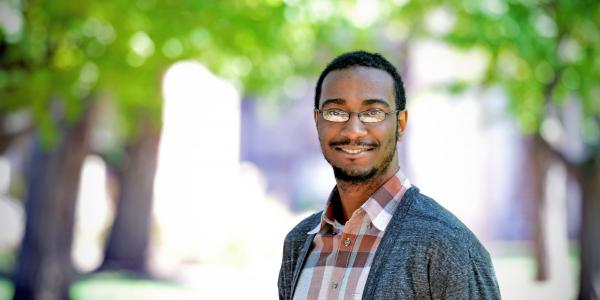
Graduate Student Resources
Can't find what you're looking for? Browse all Graduate Resources.
Graduate Student Organizations
learn more about graduate student reading groups and organizations on campus
Graduate Student Handbook
learn more about policies and procedures for the doctoral program
Life in St. Louis
learn more about the city of St. Louis and what it's like to live here
learn more about career resources from the Office of Graduate Studies
Internship Opportunity
Dorothy, a publishing project —a nationally acclaimed independent press publishing works of innovative fiction—offers a one-year internship for an MFA student in creative writing. Students can apply in the spring of their first year to begin the internship the following fall. The intern chosen will work directly with Danielle Dutton, the press's editor, on mutually agreed upon projects that take into account the intern's interests and strengths. In general, however, the internship is designed to give students a wide range of experience with literary publishing, and so will likely involve a mix of editorial work (e.g., reviewing submissions, writing reader’s reports, copyediting manuscripts in layout), marketing, design, and book production and distribution. The intern will also have opportunities to represent the press publicly, including at the annual AWP conference (travel and hotel expenses will be covered), and his or her name will appear on the press's masthead.
Interested students should submit a letter of application and a CV to Professor Dutton ( [email protected] ) and Program Director David Schuman ( [email protected] ) no later than March 15 of the spring semester of their first year. The Course Master will be Danielle Dutton; David Schuman will be the Site Supervisor.
Join us on Twitter
We use cookies to enhance the user experience on our website and deliver our services. We also use cookies to show you relevant advertising. Read the UW Privacy Policy and more about our use of cookies .
- Programs & Courses
- Entire Site
Certificate in Professional Technical Writing
Communicate Clearly on a Wide Range of Technical Subjects
Program Details
- Location: Online
- Duration: 8 months
- Times: Evenings, Flexible
- Cost: $3,995
Next start date:
October 2, 2024
About this Program
Technical communication today goes beyond writing traditional software documentation to include diverse web content, white papers and scientific publications, plus elements related to design and production. Technical writers are expected to bring both broad and deep knowledge, and skilled professionals are in high demand.
In this three-course certificate program, we’ll cover all the fundamental concepts and practical applications of technical writing. You’ll learn about the styles, formats and requirements for different kinds of technical communication. Become a well-trained, confident technical writer who can hit the ground running in a variety of organizational roles.
▸ Related Article: How to Become a Technical Writer
DESIGNED FOR
Professionals with some writing background who want to develop their technical writing abilities.
See Requirements
Requirements
Admission requirements.
To apply, you must:
- Four years of college, plus two years of work experience in any field
- Two years of college, plus four years of work experience in any field
- Be familiar with authoring tools such as Microsoft Word, including the ability to create a document, add comments, track changes, and format styles and templates
Time Commitment
Including time in class, you should expect to spend about seven to nine hours each week on coursework.
English Proficiency
If English is not your native language, you should have at least intermediate English skills to enroll. To see if you qualify, make sure you are at the B2 level on the CEFR self-assessment grid . To learn more, see English Language Proficiency Requirements – Noncredit Programs .
International Students
Because this offering is 100% online, no visa is required and international students are welcome to apply. For more information, see Admission Requirements for International Students .
TECHNOLOGY REQUIREMENTS
- Access to a computer with a recent operating system and web browser
- Microsoft Office 365 (available to students free of charge though the UW Microsoft Student Advantage program)
- High-speed internet connection
- Headset and webcam (recommended)
Earning the Certificate
You earn a certificate of completion by successfully completing all required courses. For more information, see Earning the Certificate .
▸ Explore More: Check out the new specializations in Regulatory Medical Writing and API Documentation or see all our programs for writers and editors .
Video Overview
Hear from Carl Chatfield, instructor in the Professional Technical Writing certificate program. Find out how the program helps to set up graduates for a career in the field.
WHAT YOU’LL LEARN
- The principles of visual and user-centered design, software user assistance, editing conventions, usability testing, layout concepts and publication formats
- The role of style and structure in technical communication
- Design techniques for different document types
- How to use industry-standard software tools and systems
GET HANDS-ON EXPERIENCE
Produce a document development plan and a variety of work samples for your portfolio.
EARN DIGITAL BADGES
You can earn a digital achievement badge for successfully completing this certificate program, as well as a separate badge for each course. These badges can be shared on LinkedIn and other social media sites. Learn more about digital badges .

APPLY FOR A SCHOLARSHIP
You may be eligible to apply for a UW Certificate Scholarship or Rotary Scholarship to cover most of the costs of this program. Scholarships are awarded based on financial need and the potential of the program to positively impact your career. For more information, see the Scholarships page.
Career Stats
Projected job growth for technical writers in Washington state (2020–2030)
Average salary for technical writers in Washington state (2023)
OUR ENROLLMENT COACHES ARE HERE TO HELP
Connect with an enrollment coach to learn more about this offering. Or if you need help finding the right certificate, specialization or course for you, reach out to explore your options .
Program Overview
Complete the courses listed below to earn the certificate.
Foundations of Professional Technical Writing
Intermediate technical writing, advanced professional technical writing.
Approved by the UW Department of English
View this program's advisory board .
Advisory Board
Each of our programs uses an advisory board to review content, guide design and recommend updates to ensure the program remains current as the field of study evolves. By tapping the minds of the top thinkers, doers and leaders in the field, we offer a transformational learning experience. The following individuals serve as the advisory board for this program.
Ratula Chakrabarti , Senior Technical Writer, Microsoft through Aquent
Teresa Floreano Goertz , Senior Content Strategist, Jungle Scout
Marita Stevens Graube , Principal, Pixel Theory Inc.
Brian Gutierrez , Program Manager, International & Academic Programs, UW Continuum College
Tom Johnson , Senior Technical Writer, Google
Laurie Lin , Principal, Lin Laurie & Associates; President, Society for Technical Communications, Puget Sound
Tina Loucks-Jaret , Technical Writer; Lecturer, UW Department of Human Centered Design & Engineering
Mike Maisen , Senior Technical Editor, Aspect Consulting, LLC
Blaise Mitsutama , LMS Administrator/Instructional Designer, Tombolo Institute at Bellevue College; Founder and Principal, TechFleur
Stacy Smith , Attorney and Professor, Paradise Valley Community College
Jim Travis , Editor in Chief, developer.android.com, Google
Kate Walton , CEO, Steyer Content
Jacob Warren , Senior Documentation Manager, Amazon Web Services
“I think pursuing a professional certificate demonstrated to the leadership in my organization that I am motivated, skilled and interested in honing my craft. They knew that if they offered me a challenge, I would excel.”
— al smith, certificate graduate, learning formats.

Online Asynchronous
Enjoy the flexibility of asynchronous learning with the structure of a regular course. With no real-time meetings, you’ll complete weekly assignments and interact with your class at times that work for you. Learn More »

Online Synchronous
Combine the convenience of online learning with the immediacy of real-time interaction. You’ll meet with your instructor and classmates at scheduled times over Zoom. Learn More »
Program Sessions
January 2025 noncredit, january 2025 — online, winter 2025, spring 2025, summer 2025, cost of program: $3,995, program fees, october 2024 noncredit, october 2024 — online, autumn 2024, april 2025 noncredit, april 2025 — online, autumn 2025, closed sessions, january 2024 noncredit, winter 2024, spring 2024, summer 2024, cost of program: $3,975, april 2024 noncredit, want to get the latest.
Sign up to get updates about this program, including info sessions and application deadlines.
Get Program Updates
By submitting my information, I consent to be contacted and agree to the terms and conditions outlined in the privacy policy .

Carl Chatfield
Technical Communicator and Project Manager

C. Blaise Mitsutama
LMS Administrator & eLearning Instructional Designer, Tombolo Institute at Bellevue College
Related Articles
Programs for writers and editors.
Want to craft your own story, shape others’ words or produce consistent copy as a marketer, copywriter or technical writer? Check out our numerous writing and editing programs to find the right fit for you.
7 In-Demand Technical Writing Niches
Learn about the different kinds of technical writing jobs that are prevalent in this fast-growing field.
ChatGPT: Will It Help Us at Work — or Replace Us?
How will generative AI tools like ChatGPT change the way we work and how we learn? Our instructors and program developers share their thoughts.
4 Steps to Getting Your Employer to Pay for Your Education
Your company can help pay for that career-boosting specialization, certificate or degree program — if you know how to ask. Find out how to best position yourself for educational assistance.
How to Become a Technical Writer
Technical writers are masters of the art of simplicity, and these expert wordsmiths are in high demand today. Learn more about this hot job and how you can break into the field.
related offerings
Build practical skills in various types of editing and develop the expertise to transform a rough draft into a polished work.
Proofreading Essentials
Learn how to proofread a variety of print and digital materials and how to use traditional proofreader’s marks as well as digital markup techniques.
Developmental Editing
Learn developmental editing skills by working on manuscripts, book proposals, article pitches and letters to the author.
Regulatory Medical Writing
Learn how to write regulatory documents and summarize clinical trial data. Gain experience crafting documents for regulatory submission and become familiar with the prescribed formats.
API Documentation
Understand how APIs (application programming interfaces) work and learn how to create instructions that clearly explain their services and how to use them.
Web & Digital Accessibility
Learn to develop digital and web content for any audience, including people with disabilities. Understand digital accessibility regulations and best practices for accessible design.
User Centered Design
Acquire in-depth knowledge of user-experience design and research. Learn sophisticated methods for planning and developing intuitive, user-friendly digital tools and products.
Business Writing: Reports, Proposals & Documents
Learn how to write a variety of long-form business documents. Adopt best practices for clear, concise and effective writing.
Foundations of UX Writing
Learn how to write human-centered copy that places users at the core of your work. Determine the voice and tone of content to meet the needs of the user and the organization.
Talk to an Enrollment Coach
Our enrollment coaches can help you determine if the Certificate in Professional Technical Writing is right for you. Your coach can also support you as you apply and enroll. Start the conversation!
By submitting my information, I consent to be contacted and agree to the privacy policy .
Subscribe to Keep Learning!
Be among the first to get timely program info, career tips, event invites and more.

Best Creative Writing colleges in Washington 2024
Best creative writing colleges in washington for 2024.
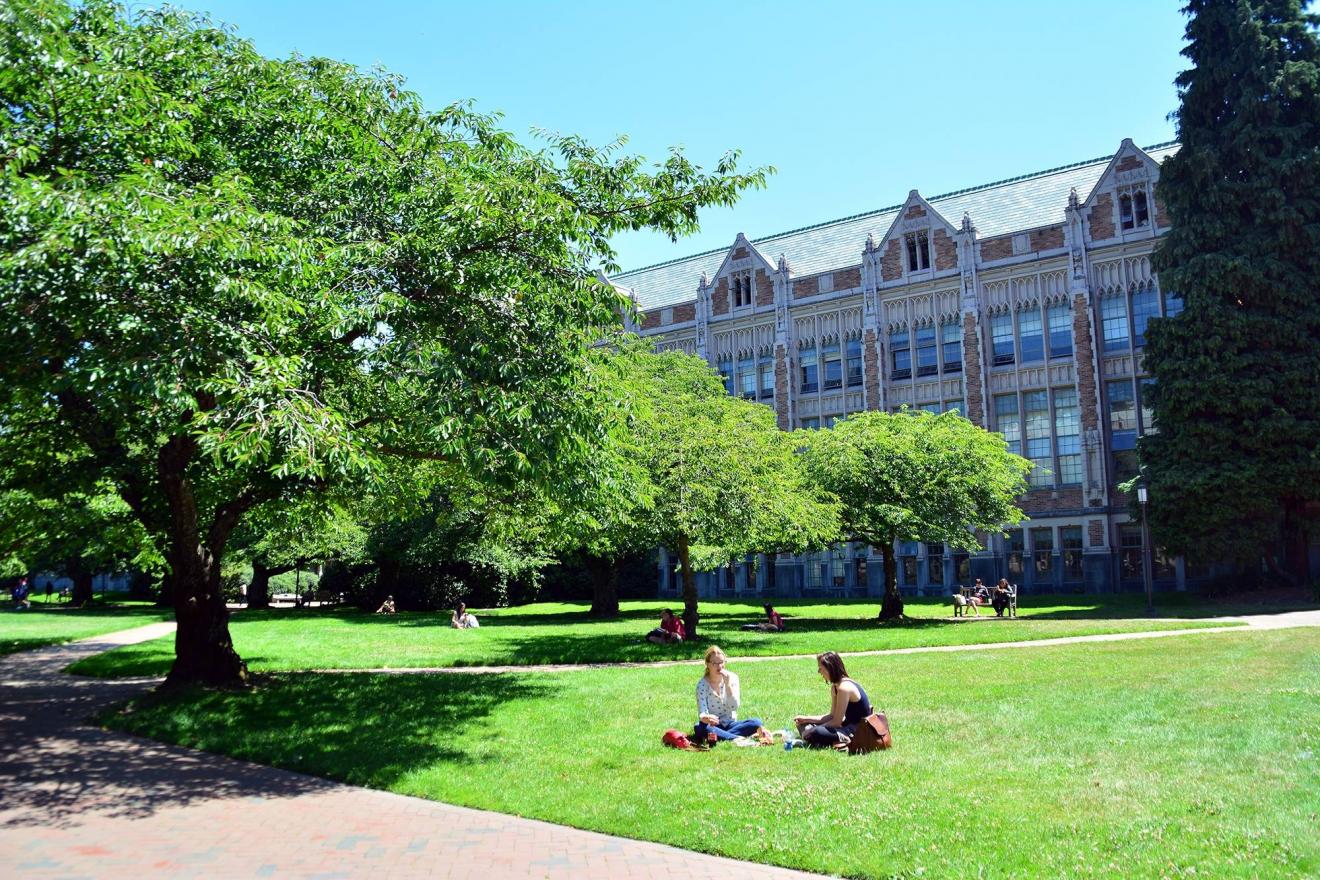
University of Washington-Seattle Campus offers 2 Creative Writing degree programs. It's a very large, public, four-year university in a large city. In 2022, 50 Creative Writing students graduated with students earning 42 Bachelor's degrees, and 8 Master's degrees.
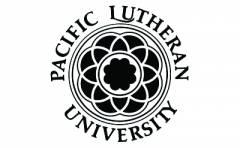
Pacific Lutheran University offers 2 Creative Writing degree programs. It's a small, private not-for-profit, four-year university in a large suburb. In 2022, 27 Creative Writing students graduated with students earning 15 Master's degrees, and 12 Bachelor's degrees.

Western Washington University offers 2 Creative Writing degree programs. It's a large, public, four-year university in a small city. In 2022, 143 Creative Writing students graduated with students earning 136 Bachelor's degrees, and 7 Master's degrees.
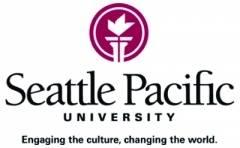
Seattle Pacific University offers 1 Creative Writing degree programs. It's a small, private not-for-profit, four-year university in a large city. In 2022, 13 Creative Writing students graduated with students earning 13 Master's degrees.
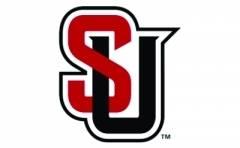
Seattle University offers 1 Creative Writing degree programs. It's a medium sized, private not-for-profit, four-year university in a large city. In 2022, 15 Creative Writing students graduated with students earning 15 Bachelor's degrees.
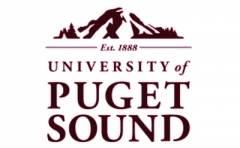
University of Puget Sound offers 1 Creative Writing degree programs. It's a small, private not-for-profit, four-year university in a midsize city. In 2022, 5 Creative Writing students graduated with students earning 5 Bachelor's degrees.
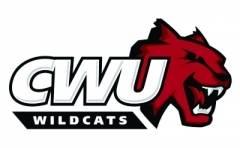
Central Washington University offers 4 Creative Writing degree programs. It's a medium sized, public, four-year university in a faraway town. In 2022, 53 Creative Writing students graduated with students earning 49 Bachelor's degrees, and 4 Master's degrees.
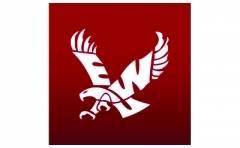
Eastern Washington University offers 1 Creative Writing degree programs. It's a large, public, four-year university in a outlying town. In 2022, 19 Creative Writing students graduated with students earning 19 Master's degrees.
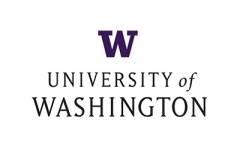
University of Washington-Bothell Campus offers 1 Creative Writing degree programs. It's a medium sized, public, four-year university in a large suburb. In 2022, 9 Creative Writing students graduated with students earning 9 Master's degrees.
Find local colleges with Creative Writing majors in Washington
List of all creative writing colleges in washington.
| School | Average Tuition | Student Teacher Ratio | Enrolled Students | |
|---|---|---|---|---|
| Seattle, WA | 3/5 | 25 : 1 | 52,319 | |
| Tacoma, WA | 5/5 | 15 : 1 | 2,633 | |
| Bellingham, WA | 3/5 | 22 : 1 | 14,747 | |
| Seattle, WA | 5/5 | 16 : 1 | 3,118 | |
| Seattle, WA | 5/5 | 14 : 1 | 7,121 | |
Quick links
- Make a Gift
- Directories
MFA Program Overview
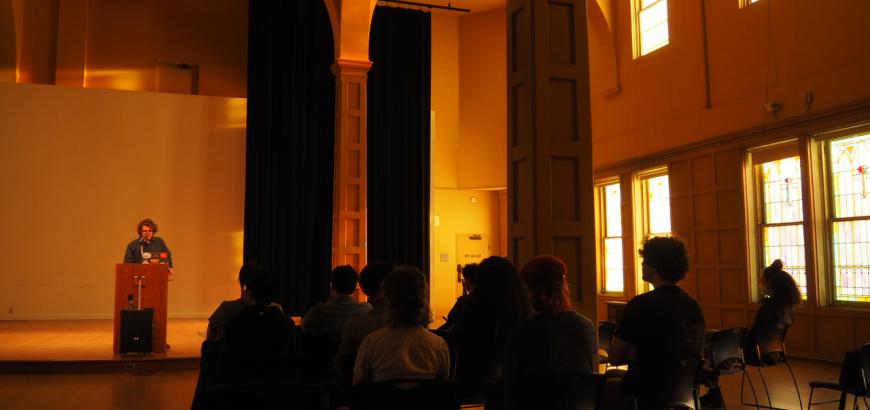
Master of Fine Arts in Creative Writing
Our MFA students participate in student-centered writing workshops supplemented by the study of literary periods and critical theory. Workshops are usually small (8-10 students) and taught using a variety of pedagogical approaches. By the end of the first year of study students will have familiarized themselves with a variety of workshop methodologies as they work toward their second year thesis.
In their second year MFA candidates present a Creative Manuscript (minimum 30 poems,100 pages of 5 short stories and/or personal essays, or 150 pages of a novel or book-length essay), a Critical Essay (20-30 pages, addressing the student's relationship to their reading based on the student's own writerly concerns and studies), and an oral presentation (a discussion with and/or questions from the candidate's thesis committee on the creative manuscript, critical essay, and/or the writing process and which may include a reading from the candidate's Creative Manuscript).
All students accepted into the program are funded through Teaching Assistantships, Fellowships, and a long-standing relationship with the Amazon Literary Partnership. All students receive full tuition waivers, health insurance, and a monthly stipend.
Students also enjoy Seattle's lively literary and arts scene. Seattle is home to numerous reading series, the Seattle International Film Festival, and many highly-acclaimed theater companies. Surrounded by spectacular scenery, Seattle is minutes away from hiking, skiing, and boating.
For questions about the MFA program, please contact [email protected]
Master of Fine Arts in Creative Writing Course Requirements
55 credits, a creative manuscript, and a critical essay. The program should be completed within six full-time quarters.
- 20 course credits in creative writing workshops (one may be outside the student's genre)
- 15 credits in graduate literature seminars (5 credits of which must be a seminar numbered 506-510, 550, 551, or 581)
- 5 elective credits (5 credits of internship [601] can count for degree credit)
- 15 thesis credits, under the direction of a Thesis Committee, including each of the following: 1) Creative Manuscript: a minimum of 30 poems, or 100 pages of 5 short stories and/or personal essays, or 150 pages of a novel or book-length essay. 2) Critical Essay: 20-30 pages, addressing the student's relationship with their reading, based on the student's own writerly concerns and studies, using a reading list compiled by the student .
- An Oral Presentation: a discussion with and/or questions from the candidate's thesis committee on the creative manuscript, critical essay, and/or the writing process and which may include a reading from the candidate's creative manuscript.
- The submission of the Creative Manuscript or the Critical Essay as an Electronic Thesis.
- Newsletter
UW Youth & Teen Programs
Sharpen your writing skills.
Improve your opportunities in life by learning to write well. In this class, we'll study writing fundamentals, skills and strategies, and then put them to practice. You'll expand your skill set by learning how to write literary analyses, persuasive arguments and narrative essays. You'll learn useful strategies for tackling high school writing tasks and college admissions essays. Develop the tools to edit your own work more effectively and gain a new understanding of the English language.
If you’re looking to further challenge yourself, check out Writing Arguments That Matter , scheduled for spring and summer 2024, which will help you master the skills of persuasive writing introduced in this course.
What You'll Learn
- How to write analytical, argumentative and narrative essays
- Ways to employ a variety of rhetorical approaches that align with your writing goals
- Strategies to help you feel more comfortable with timed, in-class writing assignments
- Tips for writing a winning college admissions essay
- Writing tricks that’ll help you master your high school assignments
Who Should Register
This course is for ninth to 11th graders who want to learn persuasive, analytical and narrative writing strategies. It's not a creative writing course, and it's not for those who need remedial writing help. All students should have a high level of English language proficiency.
We offer this course multiple times each year to meet student demand. If you’ve previously enrolled in this course, you should find a different course to take.
Instructors
Jennifer Cuffman (online) and TBD (in person)
More Information
The in-person section is taught on the UW Seattle campus .
The online section is taught via Canvas and/or Zoom video conferencing. Classes meet in real time and are not recorded. Activities are held both synchronously and asynchronously. To participate, you should have access to a computer with a high-speed internet connection and a headset and webcam.
See the Policies page for details about registration, refunds, waitlists and more.
Earn a Digital Badge
After participating in this course, you can claim a Youth & Teen Programs digital badge that you can share with prospective colleges, universities and employers and on social media.
| | Mon–Fri | 1 p.m.–4 p.m. |
| | $600 | |
| May 20, 2024 | Closed |
| | Mon–Fri | 1 p.m.–4 p.m. |
| Online | $750 | |
| Jun 3, 2024 | Closed |
Be boundless
Brought to you by UW Continuum College
© 2024 University of Washington | Seattle, WA
DON'T MISS OUT
Bachelor of Arts in English: Creative Writing
- Creative Writing (BA)
- Creative Writing (Minor)
- Creative Writing (MFA)
Are you seeking the way to write your great novel, poetry or non-fiction?
Creative Writing is a studio program designed to help you publish your artistic work. Our creative writing students, while publishing artistic work, have found diversified careers in editing, publishing, grant writing, teaching, professional schools and more. Courses in Technical Communication are complementary to these career interests.
At the heart of our programs is a passion for critical, creative, and professional understanding and use of the English language. The creative writing option emphasizes artistic expression. It builds the skills needed to produce imaginative and inspired, publishable poetry, fiction, and creative nonfiction.
Curriculum Map
What You'll Learn
The following information comes from the official EWU catalog , which outlines all degree requirements and serves as the guide to earning a degree. Courses are designed to provide a well-rounded and versatile degree, covering a wide range of subject areas.
Plan of Study
The following plan of study is for a student with zero credits. Individual students may have different factors such as: credit through transfer work, Advanced Placement, Running Start, or any other type of college-level coursework that requires an individual plan.
Courses could be offered in different terms, checking the academic schedule is paramount in keeping an individual plan current. Students should connect with an advisor to ensure they are on track to graduate.
All Undergraduate students are required to meet the Undergraduate Degree Requirements .
This major requires the completion of the World Language requirement . Students pursuing a Bachelor of Arts (BA) degree must complete two years of a single language in high school or one year of a single language in college.
| First Year | |||||
|---|---|---|---|---|---|
| Fall Quarter | Credits | Winter Quarter | Credits | Spring Quarter | Credits |
| 1 | 5 | 5 | |||
| 5 | Natural Science BACR 1 | 5 | 5 | ||
| Humanities & Arts BACR 1 | 5 | Social Science BACR 2 | 5 | Humanities & Arts BACR 2 | 5 |
| Social Science BACR 1 | 5 | ||||
| 16 | 15 | 15 | |||
| Second Year | |||||
| Fall Quarter | Credits | Winter Quarter | Credits | Spring Quarter | Credits |
| , , or | 5 | , , or | 5 | English Literature Elective | 5 |
| 5 | 5 | Global Studies - graduation requirement | 5 | ||
| Natural Science BACR 2 | 5 | Diversity - graduation requirement | 5 | Elective - certificate, minor, or general elective | 5 |
| 15 | 15 | 15 | |||
| Third Year | |||||
| Fall Quarter | Credits | Winter Quarter | Credits | Spring Quarter | Credits |
| , , or | 5 | , , or | 5 | 5 | |
| English Literature Elective | 5 | English Literature Elective | 5 | Elective - certificate, minor, or general elective | 5 |
| Elective - certificate, minor, or general elective | 5 | Elective - certificate, minor, or general elective | 5 | Elective - certificate, minor, or general elective | 5 |
| 15 | 15 | 15 | |||
| Fourth Year | |||||
| Fall Quarter | Credits | Winter Quarter | Credits | Spring Quarter | Credits |
| 5 | Elective - certificate, minor, or general elective | 5 | (Senior Capstone - graduation requirement) | 5 | |
| Creative Writing Elective | 5 | Elective - certificate, minor, or general elective | 5 | Elective - certificate, minor, or general elective | 5 |
| Elective - certificate, minor, or general elective | 5 | Elective - certificate, minor, or general elective | 5 | Elective - certificate, minor, or general elective | 4 |
| 15 | 15 | 14 | |||
| Total Credits 180 | |||||
University Graduation Requirements (UGR) and Breadth Area Course Requirements (BACR) courses may be less than 5 credits and additional credits may be required to reach the required 180 total credits needed to graduate. Students should connect with an advisor to ensure they are on track to graduate.
Required English Literature Surveys–CRWR majors are required to choose three from the approved list.
Additional Creative Writing credits–choose from the approved list.
Curriculum and Requirements
Mission Statement : The Creative Writing Program develops students’ abilities in creative writing in the genres of poetry, fiction, and non-fiction on a foundation of study of significant literary texts in British, American, and world literature.
Creative Writing is a studio program designed to help students publish their artistic work. It is not intended to prepare a student for a specific career; however, our creative writing graduates, while publishing artistic work, have found diversified careers in editing, publishing, grant writing, teaching, professional schools and many fields less directly related to their writing abilities. Courses in technical communications are complementary to these career interests.
Note: two years of a single high school world language or one year of a single college-level world language is required.
Students in the Creative Writing option are encouraged to register for 5+ credits from the following list of Breadth Area Core Requirements: HUMN 210 or HUMN 211 or history courses appropriate to the student’s area of literary interest.
Some substitutions may be allowed.
| Pre-Major Requirements | ||
| CREATIVE WRITING ORIENTATION | 1 | |
| INTRODUCTION TO CREATIVE WRITING (students must complete this course with a grade ≥B ) | 5 | |
| Required Workshops–choose two from the following | 10 | |
| BEGINNING FICTION WORKSHOP | ||
| BEGINNING POETRY WORKSHOP | ||
| BEGINNING NONFICTION WORKSHOP | ||
| Required CRWR Foundational Literature Surveys | ||
| FOUNDATIONAL TEXTS: PROSE | 5 | |
| FOUNDATIONAL TEXTS: POETRY | 5 | |
| Required English Literature Surveys–CRWR majors are required to choose three (some substitutions may be allowed) | 15 | |
| SURVEY OF AMERICAN LITERATURE I | ||
| SURVEY OF AMERICAN LITERATURE II | ||
| BRITISH LITERATURE I: BEGINNINGS THROUGH 18TH CENTURY | ||
| BRITISH LITERATURE II: ROMANTICISM TO THE PRESENT | ||
| WORLD LITERATURES | ||
| SHAKESPEARE | ||
| SURVEY OF NATIVE AMERICAN LITERATURE | ||
| CONTEMPORARY AFRICAN AMERICAN LITERATURE | ||
| FOLKLORE | ||
| MYTHOLOGY | ||
| LITERATURE OF THE BIBLE | ||
| WOMEN, LITERATURE AND SOCIAL CHANGE | ||
| Required Form and Theory Writing Courses–choose two from the following | 10 | |
| FORM AND THEORY OF FICTION | ||
| FORM AND THEORY OF POETRY | ||
| FORM AND THEORY OF LITERARY NONFICTION | ||
| Required Workshop–must be repeated twice with choice of Fiction, Nonfiction or Poetry | 10 | |
| CREATIVE WRITING WORKSHOP | ||
| Additional Creative Writing credits–choose from the following | 5 | |
| FORM AND THEORY OF FICTION | ||
| FORM AND THEORY OF POETRY | ||
| FORM AND THEORY OF LITERARY NONFICTION | ||
| PRACTICUM: WILLOW SPRINGS MAGAZINE, LIT. EDITING AND DESIGN (variable credit course) | ||
| PRACTICUM: WILLOW SPRINGS BOOKS, LIT. ED. AND DESIGN (variable credit course) | ||
| CREATIVE WRITING WORKSHOP | ||
| ZINE AND PUBLICATION DESIGN | ||
| Senior Thesis | ||
| CREATIVE WRITING SENIOR THESIS (must have senior status or have completed all 200–400 level requirements) | 5 | |
| Total Credits | 71 | |
Program Learning Outcomes
Graduates of EWU’s Bachelor of Arts in Creative Writing Program will be able to:
- demonstrate an understanding of the contemporary literary scene, at a level of proficiency sufficient for advancement to graduate work;
- offer constructive criticism of written works-in-progress within the genre at a level of proficiency sufficient for advancement to graduate work;
- produce texts that conform to the conventions specific to the genre being studied (literary fiction, literary nonfiction or poetry) at a level of proficiency sufficient for advancement to graduate work;
- synthesize an understanding of the publishing process, at a level of proficiency sufficient for advancement to graduate work;
- utilize the technical language of the craft pertinent to their chosen genre of study (literary fiction, literary nonfiction, poetry) to analyze works of literature within-genre at a level of proficiency sufficient for advancement to graduate work.
Sample Courses
Engl 385. mythology. 5 credits..
Pre-requisites: ENGL 201. A survey of classical Greek myths, with special attention to the stories used in literature, and an introduction to comparative mythology.
Catalog Listing
ENGL 389. WOMEN, LITERATURE AND SOCIAL CHANGE. 5 Credits.
Cross-listed: GWSS 389. Pre-requisites: ENGL 201. Satisfies: a university graduation requirement–diversity. Examines fictional images of women as these images reflect the changing roles and status of women from Greece to the present, focusing on the 19th and 20th centuries.
ENGL 347. WORLD LITERATURES. 5 Credits.
Pre-requisites: ENGL 201. The literature in this course represents a broad range of cultures and ethnicities. Students will read works in a variety of genre from across history and around the globe. Most syllabi in this course will not include British or American texts as those are considered in other surveys.
DESN 360. ZINE AND PUBLICATION DESIGN. 5 Credits.
Pre-requisites: ENGL 201. This course facilitates development of personal style and voice, as students design, edit, and create their own “zines” (reproducible hand-made booklets). Students practice graphic layout, typography, and professional book assembly. Analog production methods and desktop publishing software will be used. Student-made zines will be sold at “Spokane Zine Fest” and other in-person and digital outlets.
Lisa Denker
- Washington State University
- Go to wsu twitter
- Go to wsu facebook
- Go to wsu linkedin
New WSU Adobe Creative Campus agreement
Earning recognition as an Adobe Creative Campus, Washington State University now offers Adobe resources and tools to all users, including students — a first in the university’s history.
Faculty, permanent staff, and students have immediate access to Adobe Express, with design and creative courses offered full Creative Cloud.
Access a WSU Adobe License:
- Adobe Express : Available to all active faculty, staff, and students
- Adobe Acrobat Pro DC : Available to active faculty and staff
- Shared Device Licensing and VIP Licensing are also available for departmental use to offer any users not currently covered with the Adobe agreement
- Adobe Creative Cloud: Available on a limited basis and by request , please contact your local IT support team to request a new WSU Adobe Creative Cloud license
WSU employees with existing Creative Cloud access through the university can work with their local IT support team to renew their Creative Cloud license by Friday, Aug. 30 .
Please visit ITS’ website to learn more about how to use WSU’s new Adobe licensing agreement .
The Notices and Announcements section is provided as a service to the WSU community for sharing events such as lectures, trainings, and other highly transactional types of information related to the university experience. Information provided and opinions expressed may not reflect the understanding or opinion of WSU. Accuracy of the information presented is the responsibility of those who submitted it. The self-uploaded posts are reviewed for compliance with state statutes and ethics guidelines but are not edited for spelling, grammar, or clarity.

WSU employees again urged to check direct deposit information
Recent news.

Robot planning tool accounts for human carelessness

Endangered frogs set to hop into the wild

Fear of appearing prejudiced can inhibit accurate performance feedback to women

Saipan students join WSU to promote future growth and success

Kirk Schulz among new inductees to Pullman Chamber’s Walk of Fame


IMAGES
COMMENTS
The University of Washington English Department's Creative Writing Program offers a BA in English with a concentration in Creative Writing and a two-year Master of Fine Arts degrees in Poetry and Prose.. Founded in 1947 by Theodore Roethke, the Creative Writing Program's tradition of transformative workshops continues with our current faculty: David Bosworth, Nikki David Crouse, Rae Paris ...
The Master of Fine Arts in Creative Writing is a two year program offering a degree in either Poetry or Prose, and is a part of the English Department's Creative Writing Program. Founded in 1947 by Theodore Roethke, the Creative Writing Program's tradition of transformative workshops continues with our current faculty: David Bosworth, David ...
For the major's other option, see English Language, Literature, and Culture ,. Students enrolled in the Creative Writing Concentration will complete a major consisting of 65 ENGL credits, at least 30 of which must be completed in residence at the University of Washington. A maximum of 20 credits in 200-level courses may count toward the English ...
Develop your creative voice and earn a master's degree at the University of Washington Bothell. Image: LaTasha N. Nevada Diggs performing the opening keynote at the 2019 Fall Convergence ... Master of Fine Arts in Creative Writing & Poetics. Program Length. 2 years / 6 quarters. When Classes Meet. Evenings; part-time and full-time options ...
Explore More Programs. Check out all our certificates, specializations, courses and degrees for writers and editors and find a program that's a perfect match for you. Develop your craft and boost your writing abilities with a UW courses in a variety of genres. We offer flexible evening, weekend and online classes to fit your schedule.
The English Creative Writing concentration prepares students not only to be more effective communicators and artists, but also creative problem solvers and more nuanced critical thinkers. By situating small, student-oriented writing workshops alongside literary models, creative writing classes enhance the broader study of literature and ...
Creative Writing BA Courses. Our undergraduate course offerings move from introductory courses in both poetry and prose through intermediate-level speciality courses into advanced-level workshop courses. In introductory courses, students read a breadth of literature representing a range of stylistic possibilities and cultural backgrounds while ...
Associate Teaching Professor Director of Writing, UW Seattle Director, Program for Writing Across Campus
Writing Changes The Master of Fine Arts in Creative Writing & Poetics at the University of Washington Bothell is dedicated to helping each student develop their creative work through a course of study that encourages exploration and discovery. We organize our curriculum into areas of inquiry rather than genres. In contrast to many MFA programs,...
In a U.S. News & World Report survey conducted in March, the University's Masters of Fine Arts program was ranked 10th among 200 creative writing offerings across the nation, tying with programs at Boston University, Washington University in St. Louis and Cornell.
All studies; Creative Writing; North America; United States; Washington; University of Washington; Creative Writing ; About. The Master of Fine Arts in Creative Writing from University of Washington is a two year program offering a degree in either Poetry or Prose, and is a part of the English Department's Creative Writing Program.
The core of the creative writing program at UW Tacoma is innovation and its commitment to intersections with a variety of academic programs, as well as its foundational value of interdisciplinary. With a sustainable core curriculum and contemporary-themed courses, students are offered multiple pathways to explore the literary arts both in and ...
Creative Writing. Our Creative Writing Program is a two-year Master of Fine Arts program offering degrees in poetry and prose. The program admits only ten to twelve students each year, which allows us to fully fund all accepted M.F.A. candidates. ... University of Washington A101 Padelford Hall Box 354330 Seattle, WA 98195-4330. Phone: (206 ...
In this program, we'll use American English to explore key techniques for developmental editing, copyediting, line editing, structural editing, content editing and collaborating with writers. You'll develop the expertise to transform a rough draft — be it web copy, a book-length manuscript or short-form media — into a polished piece.
The MFA Program at Washington University in St. Louis is a two-year program where 30 students are working toward MFA degrees in fiction, poetry and creative nonfiction. Our world-renowned faculty will mentor you and your writing to develop to your full potential. In addition to working with our faculty, our reading series brings a diverse group ...
Join a community of students who are passionate about creative writing. Practice good writing habits and skills as you learn about the craft. Throughout this two-week course, you'll develop strategies for generating story ideas, use word building to create interesting settings and intriguing characters, and explore fun writing strategies to ...
Technical writers are expected to bring both broad and deep knowledge, and skilled professionals are in high demand. In this three-course certificate program, we'll cover all the fundamental concepts and practical applications of technical writing. You'll learn about the styles, formats and requirements for different kinds of technical ...
You'll explore and develop your own voice across various genres, including poetry, fiction, creative nonfiction, spoken word, visual or multimodal media and/or hybrid mediums. You'll read, share and constructively critique each other's work in a supportive writing community and build toward composing a final portfolio of creative work.
#4 Best Colleges in Washington.. Seattle University. Blue checkmark. 4 Year,. SEATTLE, WA,. 1022 Niche users give it an average review of 3.7 stars. Featured Review: Graduate Student says My Master's program at Seattle University was transformative, blending rigorous academics with practical experience.The engaged faculty provided valuable mentorship, helping me navigate complex....
Best Creative Writing colleges in Washington for 2024. University of Washington-Seattle Campus offers 2 Creative Writing degree programs. It's a very large, public, four-year university in a large city. In 2022, 50 Creative Writing students graduated with students earning 42 Bachelor's degrees, and 8 Master's degrees.
Master of Fine Arts in Creative Writing Course Requirements. 55 credits, a creative manuscript, and a critical essay. The program should be completed within six full-time quarters. 1) Creative Manuscript: a minimum of 30 poems, or 100 pages of 5 short stories and/or personal essays, or 150 pages of a novel or book-length essay.
This course is for ninth to 11th graders who want to learn persuasive, analytical and narrative writing strategies. It's not a creative writing course, and it's not for those who need remedial writing help. All students should have a high level of English language proficiency. We offer this course multiple times each year to meet student demand.
Creative Writing is a studio program designed to help you publish your artistic work. Our creative writing students, while publishing artistic work, have found diversified careers in editing, publishing, grant writing, teaching, professional schools and more. Courses in Technical Communication are complementary to these career interests.
The W's MFA in Creative Writing expects around 28 students for the fall semester, as it kicks off its 10 th year. The program is a hybrid between online and in-person classes. Much of the course load is achieved through synchronous online classes during the regular semester.
NEWS HOUR@12AM | AUGUST 18, 2024 | AIT LIVE
Earning recognition as an Adobe Creative Campus, Washington State University now offers Adobe resources and tools to all users, including students — a first in the university's history. Faculty, permanent staff, and students have immediate access to Adobe Express, with design and creative courses offered full Creative Cloud. Access a WSU Adobe License: Adobe Express: